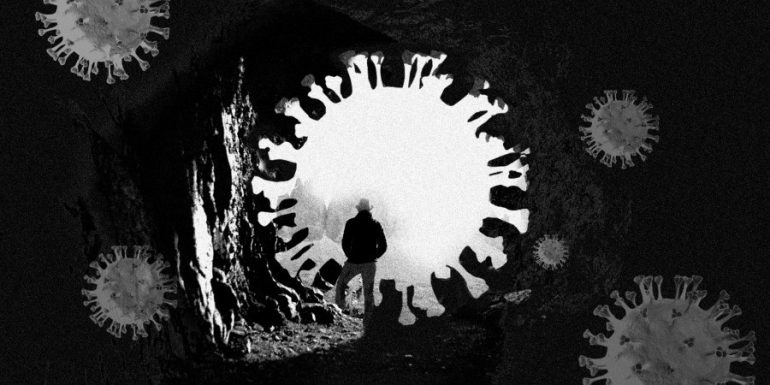The word "endemic" has entered our lives for good lately. This word may be used as a wish by most as it will mean the end of the pandemic and the beginning of a normalcy after more than two years.
The possibility of taking immediate de-escalation measures does not seem to be visible in Cyprus, at least for this week, since the epidemiological indicators do not allow for a relaxation. The goal, as the Minister of Health said on Monday, is not to relax the measures now in order to tighten them again in a few days.
During a press conference last Wednesday, Dr. Anthony Fauci, chief US infectious disease specialist, said the United States could soon have "adequate control" of the situation for COVID-19 so that "it does not disturb our society, does not dominate our lives, does not prevent us from doing things that we generally do under normal circumstances."
This is because the virus has started to decline as people become immune and take protective measures such as mask use and tests. "We now have guns with vaccines, some medicines, masks, tests and a conscience for our personal protection," Fauci said.
What will our life be like in the endemic
When the virus becomes endemic, experts say, people will be encouraged not to send children to school or work as adults. "If for any reason you have to leave the house while you are sick, you should wear a mask on public transport or indoors. "It will now become a rule that when you are sick, you stay home," she told ABC News. Wafa El Sadr, Professor of Epidemiology and Medicine at Columbia University Mailman School of Public Health.
"Do not come to work, do not go to school, do not send your children to school or kindergarten. "There must be a greater awareness of collective responsibility." Currently, U.S. federal law does not require employers to provide paid sick leave to employees, although some states, such as California, New York, and Washington, have laws that require it.
When will it finish;
The pandemic, however, will not end with Omicron, writes Nature. "This will not be the last variant, the next variant will have its own characteristics", writes the scientific journal.
As the virus is unlikely to disappear completely, the COVID-19 will inevitably become an endemic disease, scientists say. But this is a "strange" concept, meaning different things to people.
The transition to endemicity or "life with the virus" without restriction, is difficult to model with any precision. This is partly because even the best disease models struggle to make reasonable predictions a few weeks ahead. Endemicity also raises the question of how many deaths societies are willing to tolerate, while the world population will be steadily developing immunity.
For Woolhouse, the COVID-19 it will only become truly endemic when most adults are protected from a serious infection because they have been exposed to the virus many times as children and thus have developed natural immunity. This will take decades and means that many older people today (who were not exposed as children) will remain vulnerable and may need ongoing vaccinations.
This strategy has its drawbacks. Some of those exposed as children will develop long-term COVID. And this is based on the fact that children continue to show much lower rates of serious diseases as the variants evolve.
There is no guarantee that the next variant will be milder, but Tang says that seems to be the pattern so far. "This virus is getting milder with each repetition," he says.
Source: ethnos.gr/nature.com
